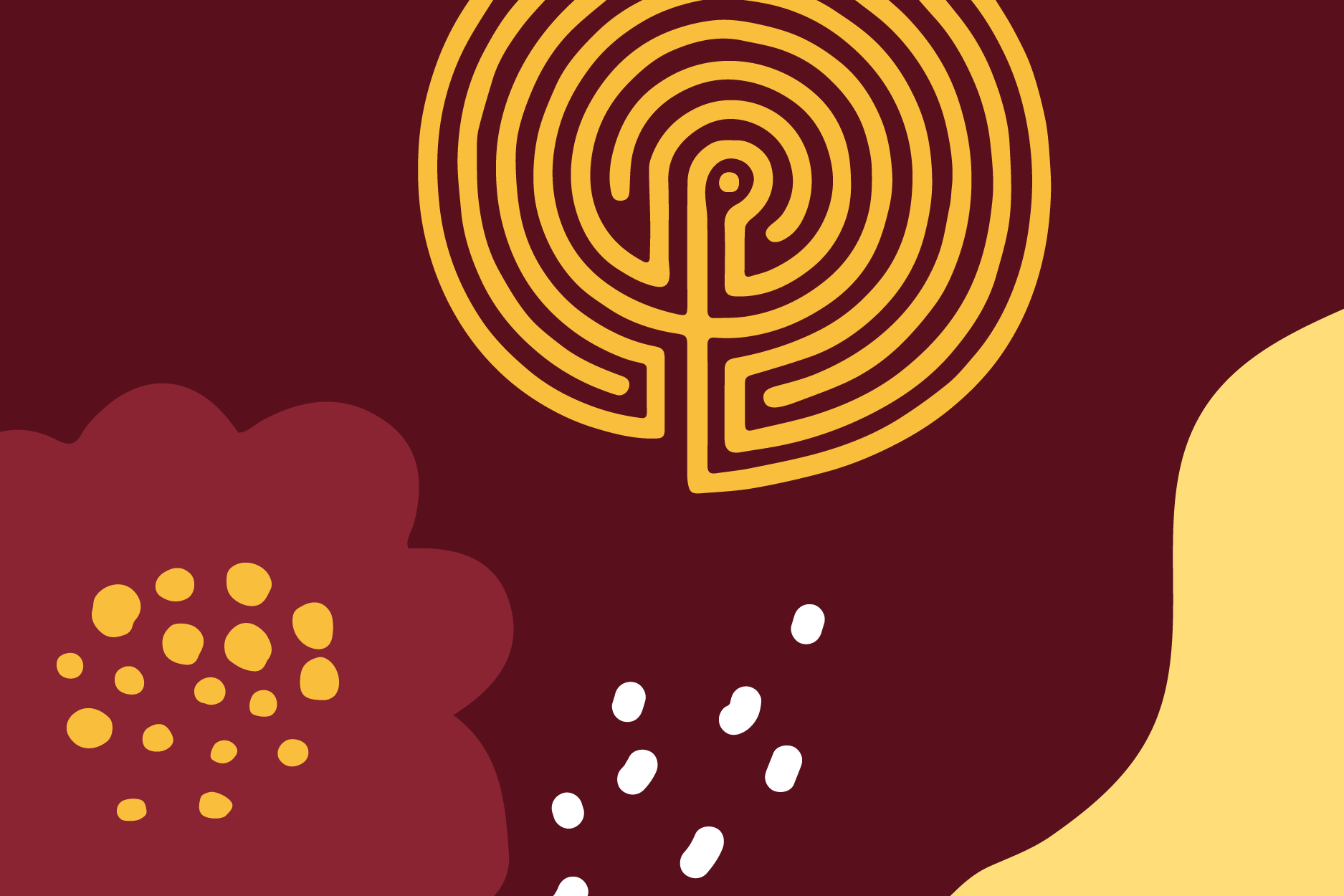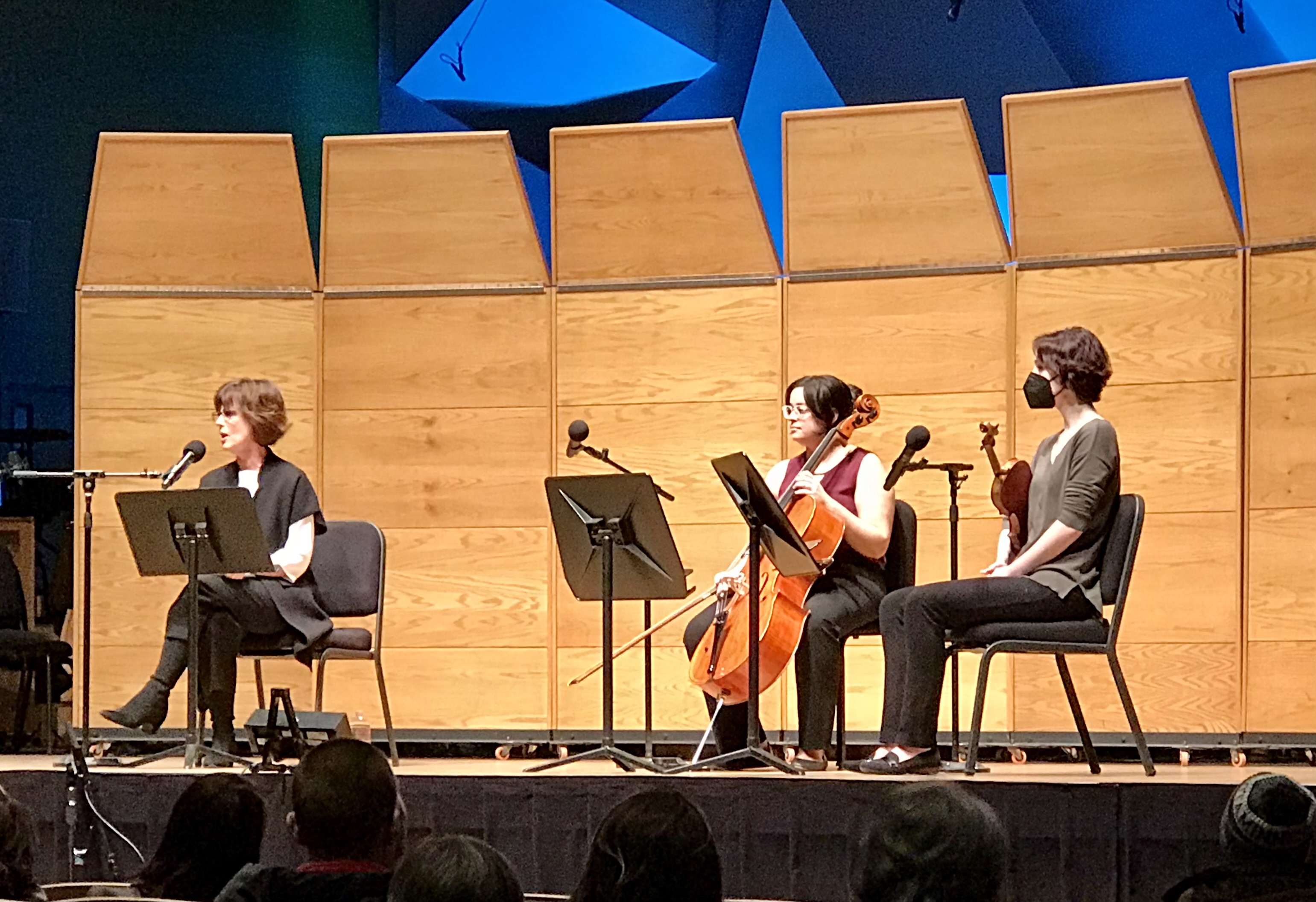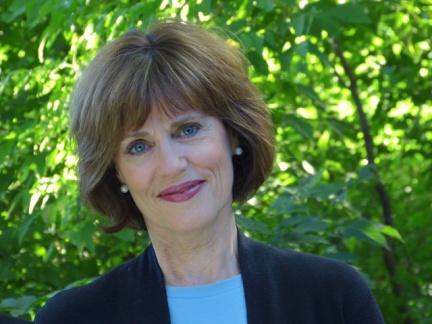Bach to Rock and Roll
Jenzi Silverman, MA, PhD, Teaches How Music Heals.
January 2, 2024
Jacques Lerouge
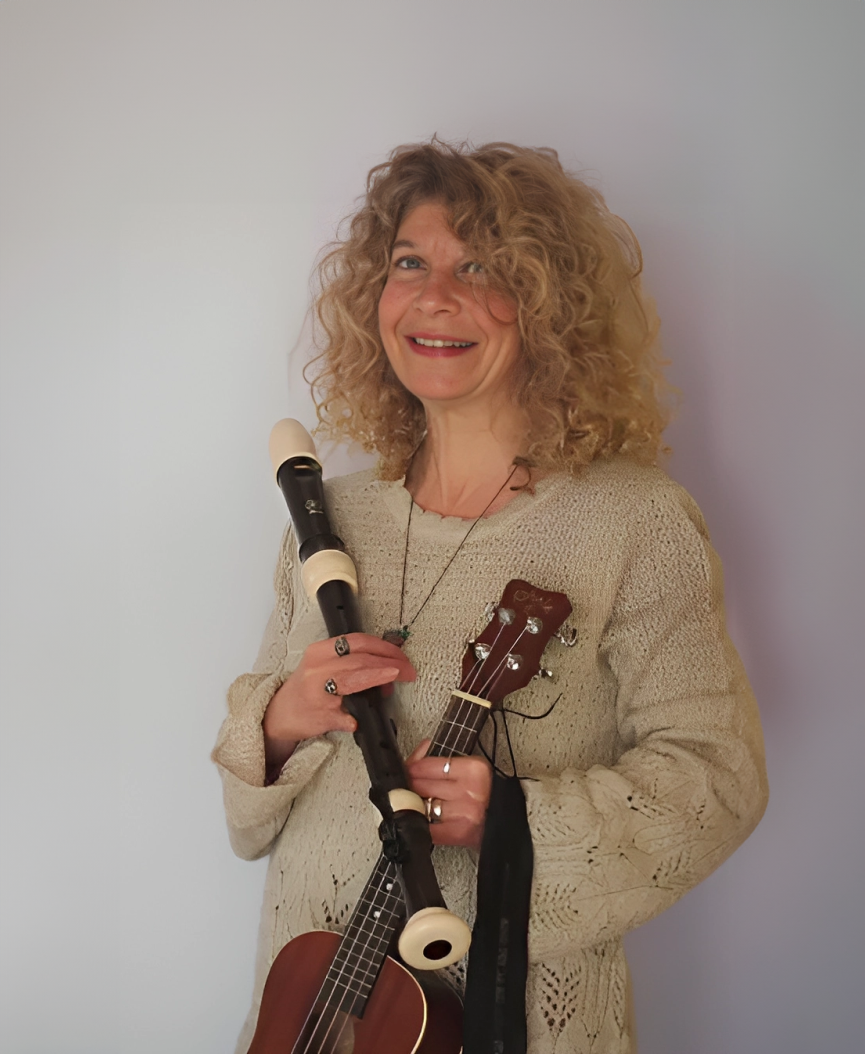
Have you ever experienced ‘collective effervescence,’ that feeling of togetherness when we gather for social rituals? For example, when we sing together, we can hear the lyrics resonating through all our voices.
Music is an accessible, time-honored social ritual. For generations around the world, music continues to be a multifaceted part of healing and a pillar of support for community wellbeing. Even when we don’t create music, we can appreciate it as the audience. Whether we hear clearly or at all, it’s possible to feel part of the synchronized vibrations and experience an increased connection to community.
“There is growing evidence that listening to or making music affects the brain in ways that may help manage disease symptoms and promote health and wellbeing,” says Mary Jo Kreitzer, PhD, RN, FAAN, Director of the Bakken Center. “Music therapy is the clinical and evidence-based use of music interventions to accomplish individualized goals within a therapeutic relationship by a credentialed professional who has completed a music therapy program. In addition to music therapy, music-based interventions may be provided by nurses, physicians, social workers, chaplains, and other members of the health care team. People may also incorporate music within their own plan of self-care.”
Why are Music, Emotions, and Memory Interconnected?
“Our brains are literally set up to respond to [music]. Because of the brain’s architecture, our emotion and memory centers are very close to the auditory cortex,” explains Jenzi Silverman, PhD, MA, graduate faculty at the Bakken Center and board of directors member at the Medical Musician Initiative.
Airwave signals travel a short distance from the ear to the emotion and memory centers in our brain. These centers pick up the signals and start to respond before we’re consciously aware of what’s going on. In 2009, Petr Janata published The Neural Architecture of Music-Evoked Autobiographical Memories, which investigates how the medial prefrontal cortex (the part of the brain right behind the forehead) plays a significant role in our sense of identity or life story. He found that it’s also very active in responding to music; thus helping us figure out what music is meaningful and important to us, and how we make that part of our personal autobiography. Additionally, the medial prefrontal cortex is also a very robust part of the brain that’s one of the last to remain in people who have Alzheimer’s disease.
In 2006, Silverman experienced this effect firsthand when she started playing the recorder for her mom at a memory care facility. When the other residents happened to overhear the music, they loved it, and the staff asked if she would play for everybody.
“The effect that live music can have on people with memory loss was something that had not even been on my radar,” she says. “I was just amazed that when I would play songs that were hits in the 30s or 40s or 50s – people who could remember very little else because they had advanced Alzheimer’s could remember the melodies and/or all the words to popular songs from their youth. They’d sing along with me or at least hum, and that just blew me away.”
Around this time, she was finishing her PhD in Educational Psychology. While she had been an avid fan of playing and enjoying music since she was a child, Silverman wasn’t sure how it might play into her professional career. This experience at the memory care facility as well as two other events would cement her purpose in music and healing.
Becoming a Medical Musician
“You need to know that Led Zeppelin is my favorite band of all time. Ultimately, they’re probably the main reason I am involved in this field,” Silverman says. One of her core memories was seeing Jimmy Page on the Outrider tour for his one solo album. Her eyes are alight when describing the final encore, as Page played an instrumental ‘Stairway to Heaven’ on a double neck guitar while the audience sings. Back in 2007, she watched Led Zeppelin’s reunion tour online. “It just made me so happy to know that my favorite band of all time was getting back together somewhere on this planet.”
“A couple months after that, I was reading two books on how music affects us that had just come out: Oliver Sacks’ Musicophilia and Daniel Levitin’s This is Your Brain on Music. I was thinking about how Led Zeppelin’s music has always been good for my mental health. In fact, it helped me pull myself out of some pretty extreme bouts of depression and anxiety.” But it wasn’t just Led Zeppelin - the Beatles and early music from the Renaissance and Baroque periods - music was integral to her identity.
“What is it about my favorite music that makes me beyond happy, and actually changes my mental health for the better?” Silverman was curious. After reading these books, she learned that music really does change our brain chemistry. It clicked, and she thought, “I need to find a way to teach other people that your favorite music is really good for you and why that is.”
In 2008, she finished her PhD at the University of Minnesota and an Associate Diploma in Recorder from Trinity College, London’s international exam program. Since 2009, she has created and taught courses on music, the brain, and wellbeing for the University of Minnesota Osher Lifelong Learning Institute and community education programs.
In the mid-2010s, Silverman became connected with Andrew Schulman, professional guitarist and Director of the Medical Musician Initiative, through her husband and social media. When Schulman posted on Facebook about the upcoming documentary about his experience having his life saved by music, Silverman’s husband commented, “Oh, you’ve got to talk to my wife.”
Throughout the next few years, the two had a number of phone conversations about Schulman’s work and about his wish to set up a training program for other musicians in providing appropriate music to help patients in intensive care settings. In 2018 and 2019, Silverman remembers the first of two medical musician training workshops that Schulman was co-leading. The training was transformative for Silverman, “when I got back, I just wanted to evangelize about medical musicianship.”
Around the same time, Silverman began the Certificate in Integrative Therapies and Healing Practices program at the Bakken Center. When she received her certificate from the Medicine for Musicians course, Silverman took a selfie with it and emailed that to Bakken Center Student Services and Academic Programs Coordinator, Erin Fider, MA.
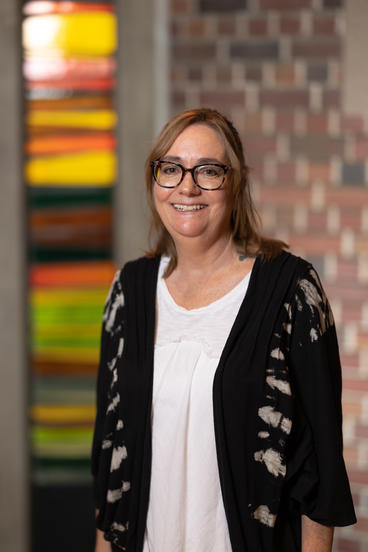
After an interview with Fider and consultation with Center leadership, Silverman began to teach CSPH 5601 Music, Health, and Healing, which had not been offered since 2012. At the beginning of 2020, only six students registered for the class' reopening. Even before the pandemic kept students from returning after that spring break, Silverman was preparing to better meet the needs of her students and adapt the course delivery to an online format.
“We had to quickly pivot everything. Jenzi was just able to jump in.” says Fider, “You would think ‘oh how do you do a music class online’ - we said that about a lot of classes at that time - only to find out, that you really can, and she was able to do that well.” That spring, the Office of Undergraduate Education put out a call for faculty systemwide to come up with new classes that spoke to students’ experiences with the COVID-19 pandemic and could help them figure out ways to cope with the stress involved with that. Silverman thought, “Ah, music can be our best friend there.” Thus began CSPH 1202 Music for Healing in times of Stress and Anxiety.
Finally, Silverman also undertook leading CSPH 5561: Overview of the Creative Arts in Health and Healing where she brings community guest speakers on poetry, hip hop, spoken word, healing, and more.
“She’s a model faculty,” remarks Fider. “She contributes a lot of wisdom and experience [to the Center], encourages other faculty, and has a lot of great ideas. And she’s just a lot of fun to work with.”
“It has been a joy to work with Jenzi Silverman over the past 3 years,” says Kreitzer. “Jenzi brings passion and a depth of knowledge about music and healing to the classroom in a way that students find inspiring and life-changing. We hear directly from students how she has changed their lives - the ultimate accomplishment for any faculty member!”
“In all my classes, I really work to teach through the diversity, equity, and inclusion lens, pointing out that, unfortunately, the arts and healing have been almost as guilty as other health care specialties, as far as being exclusionary and harmful,” says Silverman. “That has to change for good. There are ways that all of the creative arts and healing can be far more equitable and inclusive.”
What would you say to someone who wanted to become a medical musician?
“Absolutely go for it!” Silverman encourages, “because the more skilled, sensitive, caring musicians there are providing music for people in the healthcare system, the better. I would say learn all you can about how music supports health and wellbeing. Also get as much experience as you can volunteering, or if you can, working for money in those settings.
She notes that it’s important to know how to make sure the music you make only benefits, and doesn’t harm people. “Get to know what repertoire is appropriate for patients in different settings. Be aware of what your scope of practice is, what are you really trained to do? What do you feel comfortable doing? What feels right to you?”
What Students are Saying
“I really have to attribute my success [in the course] to [Jenzi]. Not only did your course provide me with so many new therapeutic experiences and ways to incorporate music into my life and healing journey, but also your presence, kindness, patience, and communication has helped me in a way words cannot describe. You are an amazing professor, and what you teach is so extremely valuable! Thank you so much for being a huge part of my healing journey! I hope to have class with you again :) Thank you again <3” From Bissy in CSPH 5601: Music, Health and Healing
“Jenzi was clearly so excited about the content of her course, and despite it being an online course, she seemed to connect with individual students. In weekly videos, she talked about individual responses or comments we made, and her feedback on my assignments was always detailed and personal. I could tell she had read what I wrote and sometimes even went and listened to pieces I referenced. She let the course be personalized to students so that you really gained knowledge from the course while being able to apply skills to your life. I appreciated Jenzi’s openness, expertise, flexibility, and kindness. It’s impressive she was able to connect with me even through an online course. The U is lucky to have her!” From Jenna, CSPH 1202: Music for Wellbeing in Times of Stress and Anxiety.
Stay Engaged
Take an academic course about Music and Wellbeing
- CSPH 1202: Music for Wellbeing in Times of Stress and Anxiety z.umn.edu/CSPH1202
- CSPH 5000-004: Music, Connection & Community Healing z.umn.edu/CSPH5000-004
- CSPH 5561: Overview of the Creative Arts in Health and Healing z.umn.edu/CSPH5526
- CSPH 5601: Music, Health and Healing z.umn.edu/CSPH5601
Watch the full 2023 Wellbeing Series with Andrew Schulman. https://youtu.be/iM3lhI_4R6s
Coming up, the Wellbeing Series 2024 - Your Brain on Art: How the Arts Transform Us featuring Susan Magsamen. Z.umn.edu/wellbeingseries
